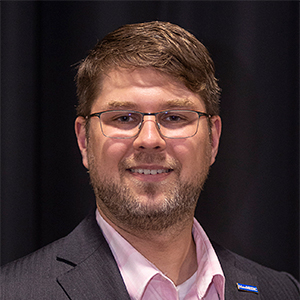Remarkably little is known about the microbes that exist in every corner of the world, including inside of us. While ‘omic techniques are providing incredible insight about microbial populations, the functions of individual species and how they interact with each other and their environment remains largely unknown.
The vast majority of bacterial species on earth have never been isolated and studied in a laboratory. In the first part of the talk, I will present passive sub-microfluidic devices that allow cells to be isolated and cultured in their natural environments. These devices are being used in the field to create libraries of high-density pure bacterial cultures that can be thoroughly analyzed and potentially domesticated. The applications for these devices include ecology, health, biological engineering, and bioremediation.

Bacterial cells secret hundreds of different molecules as part of their natural processes. These molecules range from quorum sensing molecules for communication, to siderophores that scavenge nutrients, to virulence factors that attack intruders. In the second part of this talk, I will describe the development of electrochemical sensors that are used to quantify the concentrations of chemicals secreted by bacterial cells.
Ed Goluch is an associate professor with tenure in the Department of Chemical Engineering at Northeastern University, with affiliated appointments in the Departments of Bioengineering, Biology, and Civil and Environmental Engineering. He has graduated 8 amazing PhD and 2 outstanding MS students. Edgar has published over 60 peer-reviewed journal articles and conference proceedings in the areas of sensors, microfluidics, and biophysics. He also has 3 issued patents. In 2015, Ed founded QSM Diagnostics, Inc., a diagnostics company developing electrochemical sensor technology for rapid bacterial identification and monitoring. He also founded Microbial Devices, LLC, which provides research groups with devices that passively isolate and cultivate microbes in situ.